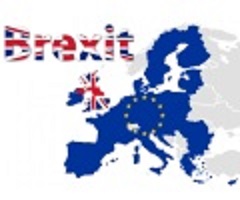LONDON (ICIS)–UK markets firmed in early trading on Tuesday on increased investor optimism that a less dramatic exit from the EU could be achieved, despite the departure of several senior government officials.UK markets firm stronger soft Brexit hopes
 The departure of chief Brexit negotiator David Davis on Sunday and Foreign Secretary Boris Johnson on Monday failed to dent a modest rally in the UK’s FTSE 100 index, as fears of a revolt by government ministers following the resignations seemed to recede.
The departure of chief Brexit negotiator David Davis on Sunday and Foreign Secretary Boris Johnson on Monday failed to dent a modest rally in the UK’s FTSE 100 index, as fears of a revolt by government ministers following the resignations seemed to recede.
The two cabinet ministers quit following the release of a statement following an all-hands cabinet meeting convened last week at Chequers, the countryseat of the UK Prime Minister Theresa May, outlining a more explicit commitment to a soft break from the EU than had hitherto been publicly declared.
The value of UK sterling against the euro dipped on Monday following news of Johnson’s departure, but broadly recovered on Tuesday, with Deutsche Bank analyst Jim Reid noting that the path to a soft Brexit “is materialising faster” than expected.
“If [the resignations] lead… to a marginalisation of the hard Brexit wing of the Tory [Conservative] Party in negotiations, this would represent a meaningful positive,” he said.
“Indeed, at this stage it seems likely May will survive the crisis, leaving her in a stronger position to seek compromise with the EU27.”UK markets firm stronger soft Brexit hopes
The Chequers statement sets out a Norway-style free trade agreement as the desired outcome of Brexit negotiations through the establishment of a new free trade area for goods, rather than accession to the existing European Economic Area (EEA).
May, trying to balance the expectations of Brussels and the Eurosceptic wing of her own party, had demurred up to this point from so clearly setting out the practicalities of a post-Brexit trading model.
Crucially for chemicals producers, the statement prioritises maintaining regulatory alignment on the trade of goods between the regions and for the development of a new arrangement removing the need for border checks and controls for items crossing the channel.
The emphasis on a new customs arrangement, rather than a push for customs union membership, implies that the UK is hoping to broker a bespoke border agreement that would be less restrictive.UK markets firm stronger soft Brexit hopes
Under customs union rules, deviation by a signatory country from EU trade rules on any commodity could necessitate checks for all trucks crossing the border, slowing the pace of trade and potentially creating gridlocks at the ports.
The country would accept the status as rule-taker on trade goods regulations as the price of striking such an accord, and maintain a role for the European Court of Justice (ECJ) – a cause-celebre in UK tabloids – in the country on matters of arbitration involving the EU.
“The UK and the EU would maintain a common rulebook for all goods including agri-food, with the UK making an upfront choice to commit by treaty to ongoing harmonisation with EU rules and goods, covering only those necessary to provide for frictionless trade at the border,” the government said in a statement following the summit.
However, the country is seeking to strike different arrangements for services, including its crucial finance industry, although little indication was given on how this would be achieved.
It remains to be seen how much of this arrangement, if any, will be accepted by European Commission lawmakers, which have been loath to grant any concessions to the UK in negotiations so far, according to sources familiar with talks in Brussels.
However, the fragility of May’s position as Prime Minister and the extent of the climb-down in the Chequers statement, compared to earlier UK government rhetoric, could increase pressure on Commission officials to find middle ground on at least some aspects of the statement.UK markets firm stronger soft Brexit hopes
Business investment in the UK has proven more resilient in early 2018 than had initially been expected, according to analyst Pantheon Macroeconomcs, meaning that the successful brokering of a soft Brexit deal could unlock a wave of investment into the country.
However, the bid for a different arrangement on services than goods is likely to fail, with the final configuration the UK’s post-Brexit relationship with the EU to hew far closer to existing EEA terms than a bespoke deal, according to Pantheon chief UK economist Samuel Tombs.
“Eventually, we think that the EU will force May to cross-out more of her red lines and opt to stay in the EEA, preserving full access for services firms, in order to get a deal done,” he said.
He added that the likelihood for negotiations to drag on through to 2019 likely to depress business confidence until then.
Pictured: UK and EU flags outside the country’s parliament
Source: Alberto Pezzali/REX/Shutterstock
